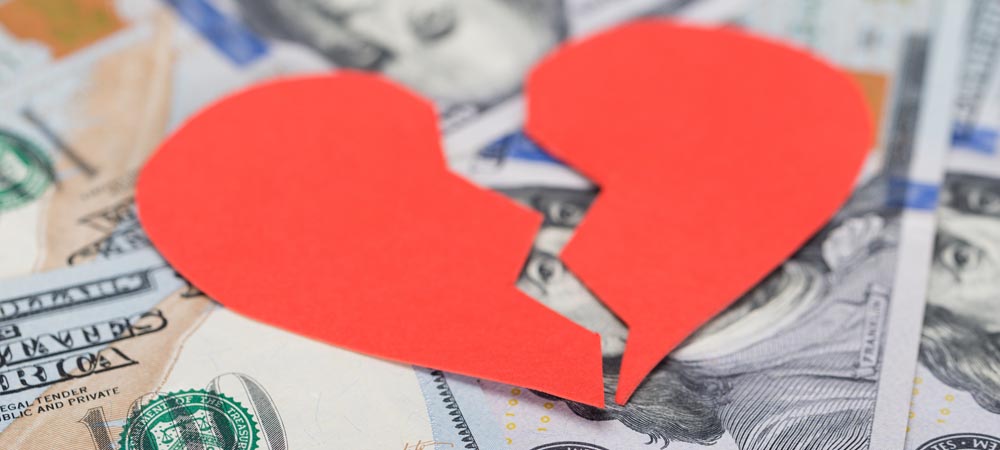Romance or sweetheart scams trick people all year round, but they are particularly effective leading up to Valentine’s Day because they prey on people’s yearning for love. According to the Federal Trade Commission (FTC), romance scams jumped 40 percent from 2018 to 2019, costing 25,000 reported victims a total of $201 million.
You may be familiar with Bravo’s mini-series now airing on Netflix, Dirty John, a dramatization of the real-life events of how a serial con man married a wealthy and successful interior designer after only two months of dating. The two met through an over-50 dating web site and had a whirlwind romance that ends in a dark and deadly place. Now, that may be more the extreme outcome, but between relationship sites like Match.com, eHarmony, Tinder, and even social media networks, there are more online options to navigate than ever before. And, just like Dirty John, this also means today’s scammer has increased opportunities to lure lonely singles into a web of deceit, not just stealing hearts but conning them out of money.
Fraud at First Site
There are several ways that sweetheart swindlers trick their victims. One of the quickest ways is through phishing messages, where the recipient will click on a link that downloads malware onto their device. This allows the fraudster to gain remote access to personal information, online accounts, and passwords — essentially any data on your device.
A more modern approach, known as catfishing, is when scammers build online relationships with their unsuspecting suitor. Some will go so far as to chat “in person” on the telephone, but likely never via webcam. Once they are certain their victim is committed, the Fake Romeo (or Juliette) will present a phony reason why they need money. All too often, after pulling on their heartstrings, people are coerced into sending them cash, checks, or gift cards.
Red Flags: How to Spot a Thief of Hearts
While you may be feeling the squeeze around Valentine’s Day, it’s never a good idea to rush into a relationship, especially a digital one. Here are some signs that your newfound chemistry may be a charade:
- You can’t find any evidence of them existing outside of their dating profile
- They will never agree to get together in person
- They become overly personal too quickly or hint at stories of financial hardship
- He or she lives in another country or too long of a distance away for a feasible relationship
Tips to Protect Yourself From Romance Scams
- If an online romance seems too good to be true, it probably is. Stop communicating with the person immediately if they begin requesting gifts, gift cards or wired money before you’ve met in person.
- Contact your bank right away if you’ve sent money to a scammer. Your bank may be able to stop the transaction if you contact them early.
- Report the scam right away to the dating site and the FTC. Many of these scams go unreported because victims are too embarrassed that they fell for such a scheme and let their feelings get in the way of logic.
- Think before you overshare. Never share personal or financial information before a legitimate, interpersonal relationship exists.
